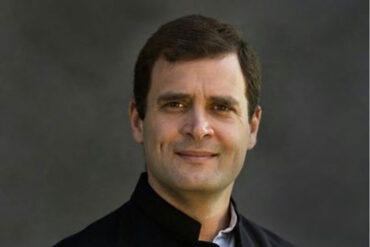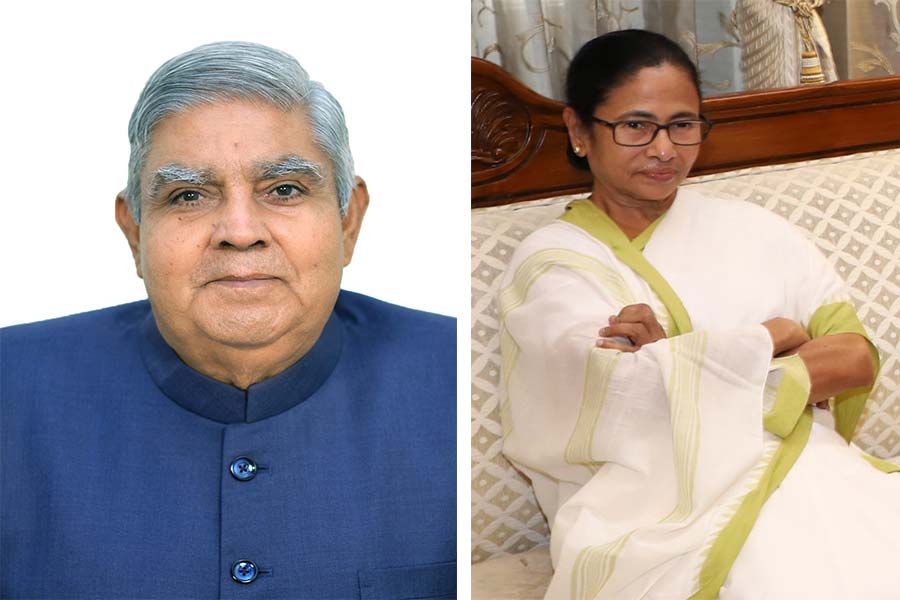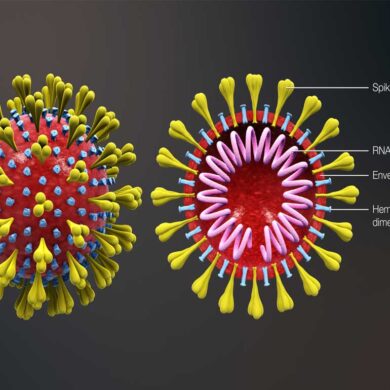One intriguing feature of the highly politicised feud between state Governor Jagdeep Dhankhar and West Bengal Government is that both squabbling parties are confident of winning it, never mind the consequential sufferings for Bengal’s stressed, aggrieved citizens. An added complication is that one side, the ruling Trinamool Congress (TMC), is not terribly averse to fight ‘dirty’ if necessary, even if this involves distorting facts and making false claims.
Its insistence that the Governor refuses to sign pending bills, stalling the state Assembly’s business is one of many examples. As a detailed Raj Bhavan clarification made it abundantly clear, the government sent a clutch of bills for signing to the Governor at short notice. Dhankhar, having received opposition complaints about how the language of legislation is tampered with, asked for clarifications. Not receiving any reply—not exactly big news under TMC-style governance—he refused to act, in his own words, as’ a postman or a rubber stamp’.
How did the TMC react? Leaders stayed silent for 48 hours. Then Chief Minister Mamata Banerjee repeated her old charge about the Governor delaying things at a public function, without once referring to the Raj Bhavan rejoinder. Old-timers recalled how she had done the same to the Tatas. The Tatas had repeatedly announced they would never do real estate business or put up golf courses at Singur land taken for their small car project, revealing details. No matter. Ms Banerjee stuck to her allegations for days afterwards without responding to the Tatas, repeating it to stoke mass anger against the group, among poor farmers.
So far, the Governor has carried out an apparently reasonable, highly-nuanced campaign that effectively exposes the shocking administrative failures of the ruling Trinamool Congress (TMC) government. As of now he is clearly ahead on points. Dhankar has mentioned only tangentially the familiar failures in the state’s Health, Law and order, Civic Affairs and the glacial ‘speed’ of governance. His cheery assertion that he will ‘visit every corner of Bengal to learn about the local culture and meet the people’ has sent shivers down Ministerial spines.
The state’s grim response has been to boycott/ignore the Governor’s invitations/orders to ministers/officers to meet him for routine consultations. Senior officials, who under no circumstances can ignore a gubernatorial summons, have skipped such scheduled meetings, in Kolkata and the districts. Police officials are on record saying that they were acting on orders ‘from above’.
However, there is a new twist in the flare-up between the Governor vs the Chief Minister. Despite his occasional recourse to theatrics, (in which he is a worthy match for the undisputed champion in this genre, Mamata Banerjee herself) and his denial of any political intent, Dhankhar has turned out to be a doughtier foe than the TMC had reckoned with. There is good reason to believe that he has been sent by the centre on purpose to make things difficult for the ruling TMC Government. Virtually blacked out by the fiercely pro-Mamata Bengal print and electronic media, Dhankhar has made very effective use of social media.
These days, he addresses media persons impromptu almost daily, needling the Chief Minister and the team she leads with great effect. He teaches them the need for maintaining normal decorum and courtesies so vitally necessary to maintain centre-state relations, democratic values and the functioning of the federal set-up. He sends them his goodwill messages through the media.
He has even invited the Chief Minister for a heart-to-heart with him at any time, at a place of her choice to discuss any issue under the sun. The reason: ‘I have spoken to her on the phone suggesting this, and written many letters to her already. There has been no response.’ He says. All his efforts, he added on another occasion, ’ends up in a black hole’.
However, this may not hurt the TMC politically. It is a party known for its rabble-rousing, street-smart agitprop tactics, relying more on mass hysteria than factual arguments. Such rough and tumble tactics have brought it rich dividends over the years.
Legal experts have a different take. A senior Supreme Court lawyer says, ’Dhankhar is a lawyer of considerable experience. He is proceeding methodically step by step to build up a case against the state Government. The way the knives are being sharpened between the CM and the Governor, it may not be long before there is a constitutional crisis, even a breakdown in Bengal. When matters reach the Supreme Court, Raj Bhavan will be at an advantageous position vis-à-vis the Nabanna (State Secretariat.)’.
Regarding the Governor’s role, says lawyer Arunabha Ghosh, “The law gives the state Governor more powers to act than the President of India, who is duty-bound to accept the advice of an elected Ministry and sign proposed legislation. The Governor can seek clarifications before he approves of a proposed legislation. He has every right to meet officials independently, call them for details and clarifications. He can go anywhere within the state without requiring anyone’s permission, being the Constitutional head of the state where he is posted and its first citizen.”
Dhankhar, himself a Supreme Court lawyer and a former Minister for parliamentary Affairs to boot, has time and again made the very same points in an apparently futile bid to educate the Chief Minister and her loyal cohorts politically.
The two sides, going by the trend of their feud so far, have been fighting with different weapons. The Governor has been using logic and reason in his arguments. He has spared no opportunity to needle the government, damning its performance with occasional faint praise.
As for the TMC Neither the Chief Minister nor others, have tried to counter him factually. Dhankhar has openly challenged them to mention one single instance where he has violated the Constitution. So far there has been no answer.
This is not to suggest that he is not playing politics. Of course he does and very effectively. That he enjoys full backing from centre is evident. Most of his comments are politically loaded.
The weapon most used by the TMC, is vitriolic abuse and personal attack, elements most strongly typified by the Chief Minister whenever she launches one of her endless wars against an opponent, real or fancied. As of now, there is no sign that the Raj Bhavan and Nabanna are in any hurry to stop their daily bickering.







